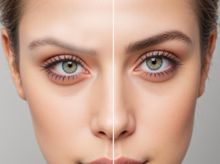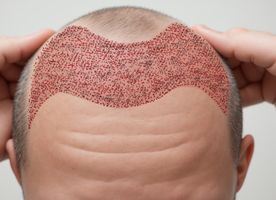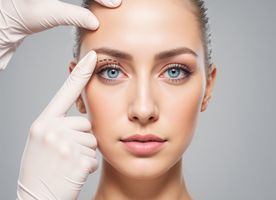Eyebrow Hair Transplant in Calle Guayubin Olivo
Search and Compare the Best Clinics and Doctors at the Lowest Prices for Eyebrow Hair Transplant in Calle Guayubin Olivo

















































































































































No Time?
Tell us what you're looking for and we'll reach out to the top clinics all at once
What does a Eyebrow Hair Transplant Procedure Involve?
This procedure is very similar to a traditional hair transplant. You are given general anesthetic, then your doctor makes small incisions at the follicle in the donor sites (usually the hairs above your ears). After that, small incisions are made at the sites of transplantation in your eyebrows and the hair follicles are placed. Any stitches will be placed in strategic positions so the scars are virtually unnoticeable.
How Long Should I Stay in Calle Guayubin Olivo for a Eyebrow Hair Transplant Procedure?
You may be able to leave the hospital immediately after the procedure. Plan to stay in Calle Guayubin Olivofor about 3 to 4 days for the initial consultation, the actual procedure, as well as a follow-up appointment to monitor your healing and removal of stitches.
What's the Recovery Time for Eyebrow Hair Transplant Procedures in Calle Guayubin Olivo?
The recovery time is relatively quick. You should avoid strenuous exercises for about 3 weeks, but you may be able to return to work and most of your activities in about 5 days.
What sort of Aftercare is Required for Eyebrow Hair Transplant Procedures in Calle Guayubin Olivo?
Your doctor will give you detailed instructions on how to care for your new eyebrows. You need to avoid touching or picking at your eyebrows. After several months, your new brow hairs will start to grow and you may trim them to your desired length. There are generally no dietary restrictions after the procedure.
What's the Success Rate of Eyebrow Hair Transplant Procedures in Calle Guayubin Olivo?
Eyebrow hair transplant is effective, highly successful, and safe. However, it is better to be informed about the potential side effects and risks that the procedure carries, including nerve damage, excessive bleeding, swelling; bruising, scarring, infection, and the new follicles that do not produce new hairs.
Are there Alternatives to Eyebrow Hair Transplant Procedures in Calle Guayubin Olivo?
Although hair transplant is currently the only procedure that offers a fuller and permanent brow hair, not everyone can undergo the procedure. If you are not an ideal candidate for the procedure, you can undergo eyebrow micro-blading or eyebrow tattoo.
This information has been accurately sourced and verified by a medical professional for its accuracy, however, we strongly recommend you to consult with your doctor before pursuing medical procedures overseas.












